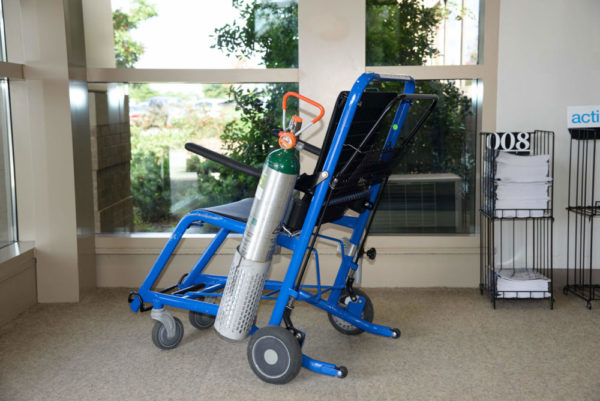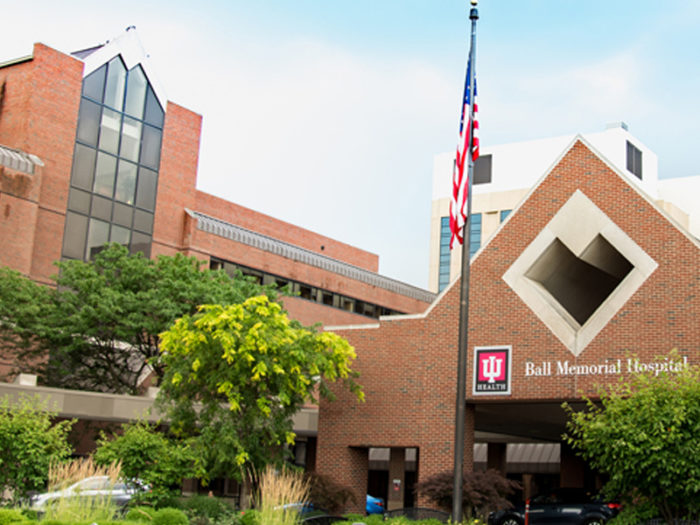How Long-Term Hospital Level Care can Help You Make a Full Recovery
If you or a loved one has suffered a serious injury, illness, or surgery, it’s likely that you’ll need additional care in order to fully recover after being discharged from the hospital. In this case, your doctor will refer you to a long-term acute care hospital or an LTACH. At AMG you’ll often hear an LTACH referred to as a critical illness recovery hospital.
A critical illness recovery hospital will help you get the hospital-level care and rehabilitation you need to in order to regain more of your independence and reduce the chance that you’ll return to the hospital.
Unfortunately, it is possible that your insurance company could deny your LTACH referral. This can be frustrating and confusing when both you and your doctor know that you need additional care. What can you do when this happens?
First, you should know what an LTACH is and how it compares to a regular hospital. Many people confuse an LTACH with a long-term care facility or nursing home. However, this could not be farther from the truth.
An LTACH is equipped to provide the same intensity of care and intervention that you get in the intensive care unit of a traditional hospital, hence the name critical illness recovery hospital. Of course, there are a few differences between an LTACH and a normal hospital that you go to when you have an emergency or need a surgery.
The first difference is that while a hospital is there to help you through those immediate medical needs, keeping patients for an extended period of time is not possible. For example, if you have a stroke, a regular hospital will generally discharge you within a week[1]. You might be out of danger at this point, but a full recovery could be much farther away.
An LTACH, on the other hand, provides the same 24-hour nursing and daily specialist access that you received during your emergency admission to the hospital, but the LTACH goes further with the critical care and rehabilitation therapies you need for however long your recovery may take.
Another difference between an LTACH and a regular hospital is the number of conditions they treat. A regular hospital treats any ailment, ranging from minor injuries to life-threatening diseases, while our critical illness recovery hospitals specialize in treating patients who require care for longer periods of time.
Why Your LTACH Referral was Denied by Your Health Insurance
Sometimes, health insurance companies deny LTACH referrals. There may be several reasons why you were denied, including:
- Preadmission screenings – We conduct a preadmission screening for all of our patients. Included within the screening is a patient history, an assessment of current conditions, an overview of the patient’s diagnosis, and the patient’s needs for an LTACH. Sometimes the insurance company will disagree with this assessment, and deny the referral.
- Out of network – Your insurance may also have an “in-network provider.” If the LTACH you choose is not included in this list, your referral could be denied initially.
- Lack of plan benefits – While most insurance plans cover a medically-necessary stay in an LTACH, it is possible that your plan isn’t one of them. In this case, we can often help you navigate an appeal.
- Unlikely chance of recovery – Your doctor will only refer you to an LTACH if you need more time to recover or move to another level of care. If your insurance feels this isn’t accurate, they will deny the referral.
How to get the Care You Need After Your Referral was Denied
Your health condition is stressful enough—don’t let your insurance company stress you out any more than you already are.
Thankfully, the admissions experts at AMG are here to help coordinate with your doctor, hospital, and insurance to understand the reason behind your denial and get your care back on track.
While we handle the heavy lifting, there are a few things that you can do to help accelerate the process:
- Call your insurance company – The first step in overcoming your referral’s denial is to find out the reason for it. The easiest way to do that is simply to pick up the phone. Once you’re armed with the knowledge of why you’ve been denied, you’re better able to advocate for the care that you need.
- Talk to your doctor
- File an appeal – Depending on the type of insurance you have, there is a specific appeal process that you’ll need to follow. For private insurance, there are two levels of appeals[2]. The first is an internal appeal, which is handled by the insurance company. The second is an external process reviewed by a third-party. If you have Medicare, there are five levels of appeals where the denial can be overturned[3]. Medicare also offers a fast appeal process if you feel you’re being discharged from the hospital too soon.
- Ask for an exception – If the denial is a result of the LTACH being out-of-network, you can always ask for an exception to be made. This works when you have a medical necessity that the current providers in your plan aren’t able to meet.
- Keep a paper trail – Keep every letter you get from your insurance company, copies of your appeals, as well as notes on dates that you speak to someone at the company, their name, and anything you learned.
- Collect your evidence – You should also collect your hospital records, doctors’ notes, lab and imaging reports, and prescriptions. This helps support medical necessity.
- Reach out to your state insurance department – If all else fails, your state insurance department and the attorney general can often help advocate for you.
If you’re feeling overwhelmed and don’t know where to start, be sure to reach out to the case managers at AMG for help.
Recover at Your Own Pace
At AMG Specialty Hospital, we’re here to help. We know how confusing and intimidating it can be to navigate the referral process when you or your loved one has already been through so much.
From the moment you’re referred to one of our locations, we’ll work to help you. We will conduct a complete review of your coverage to ensure that you have benefits. Additionally, we’ll work to overcome any insurance barriers you might face prior to admission. Our team of knowledgeable professionals will help you every step of the process.
We’re dedicated to getting you the care you need to recover more fully and regain your highest level of independence and quality of life. Contact us today to learn more about how we can help you with your denied LTACH referral.
To find a location to get the care you need when you need it most, click here.
[1] http://strokeconnection.strokeassociation.org/Summer-2017/What-Happens-Next-Making-the-Best-Decisions-at-Discharge-After-Stroke/
[2] https://health.usnews.com/health-news/best-hospitals/articles/2015/07/21/when-insurance-denies-your-hospital-upgrade
[3] https://health.usnews.com/health-news/best-hospitals/articles/2015/07/21/when-insurance-denies-your-hospital-upgrade


